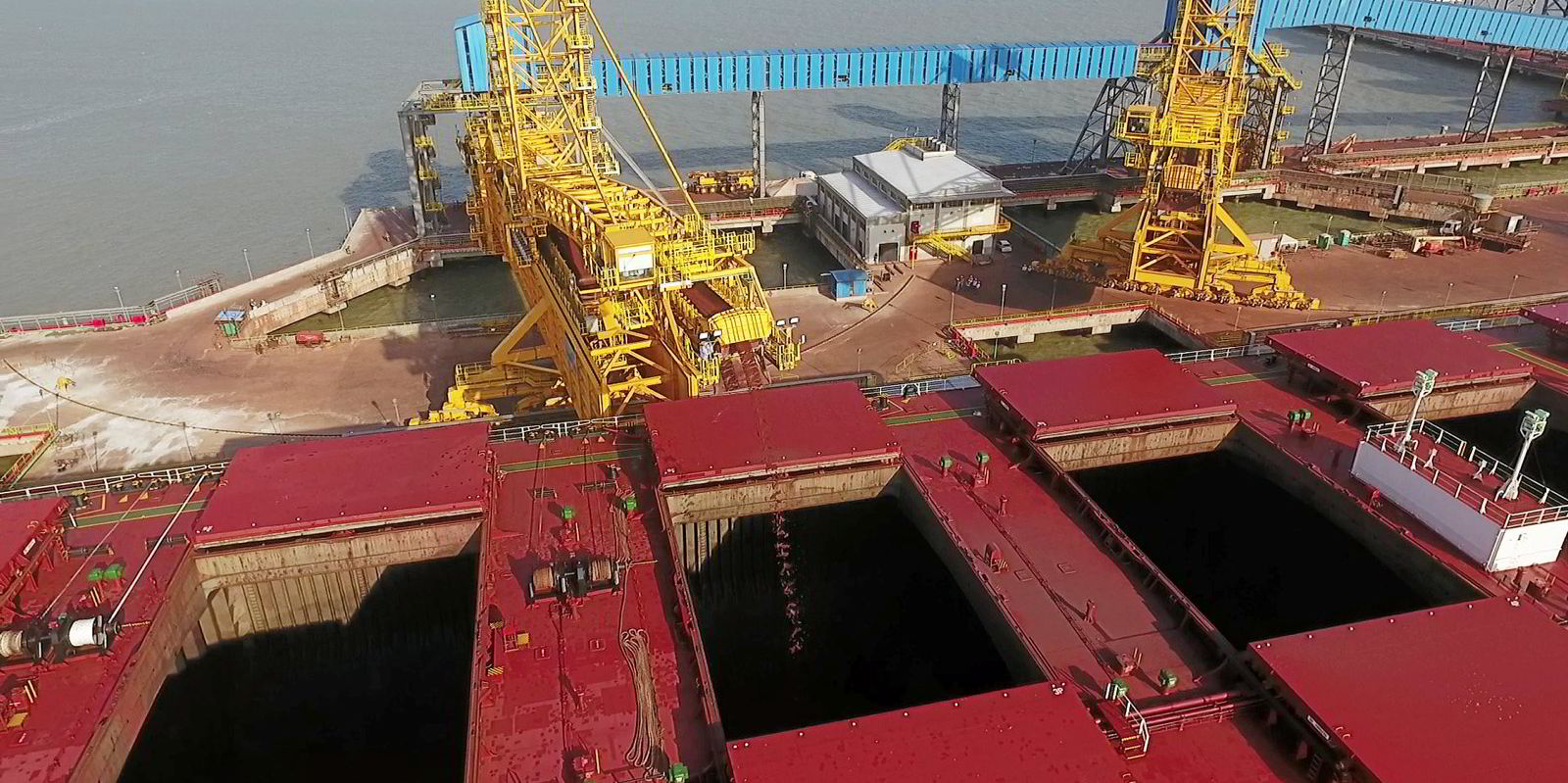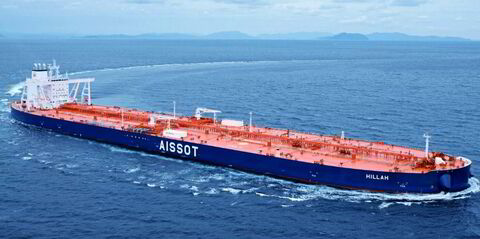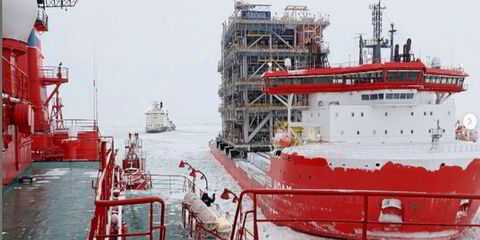A key capesize spot rate assessment in the Atlantic took a historic one-day plunge on Wednesday as market experts pointed to a growing list of unemployed bulkers in the region.
The Baltic Exchange’s assessment of a transatlantic round-trip voyage dropped $10,600 per day, or 15%, in 24 hours in what shipping-focused asset management firm Breakwave Advisors described as the second-largest daily plunge on record for the indicator.
Capesize rates on the route now stand at just under $31,900 per day, the lowest level since 22 November, according to Baltic Exchange data.
The route’s plunge was part of a wider dive in average capesize rates on Wednesday that was driven by the Atlantic market malaise, even as the Pacific was showing signs of life.
The exchange’s Capesize 5TC route basket, which measures spot market strength on key routes, slumped 20.5% in the day, continuing a decline that started on 5 January and bringing the market to the lowest level in seven weeks.
Baltic Exchange analysts said that pressure continued to weigh down on spot rates for voyages from Brazil or West Africa to the Far East.
“The previously substantial gap between the bid and the offer is now gradually closing as owners are having to reduce their offers,” the analysts wrote in a daily report.
“Brokers have observed a growing tonnage in the North Atlantic, contrasting with what seems to be a diminishing availability of cargoes, further exerting downward pressure on the market.”
Two fixtures emerged on Wednesday, although they were forged a day earlier, that saw Brazilian miner and steelmaker CSN book a pair of capesizes to carry 180,000 tonnes of iron ore from Itaguai to the Chinese port of Qingdao at $24 per tonne.
That is down from $29.80 per tonne for the most recent similar voyage, and a slightly smaller cargo, on 4 January.
However, the Pacific market woke up from a sluggish start to the week with two iron ore miners reentering the market in Western Australia on Wednesday, adding to fresh enquiry to lift coal cargoes, the Baltic Exchange analysts said.
“It seems that this combination has effectively mitigated the swift decline observed so far throughout the week,” although they noted that rates still came down.
BHP picked up two capesizes to move 160,000 tonne cargo stems from Australia’s Port Hedland at $8.20 to $8.35 per tonne, while Rio Tinto paid $8.35 per tonne to lift 170,000 tonnes of iron ore at Dampier.
That is still down from $8.60 for a similar voyage a day earlier.
However, for bulker market players Wednesday’s slump was a sign of seasonality rearing its head, as spot rates in the sector remain above levels of the same time last year.
“The usual seasonal movements,” shipowner 2020 Bulkers said on X, formerly Twitter. “Brazil cargo volumes is the bearish part.”
But the company, which specialises in larger newcastlemax vessels, said China inventories paint a bullish picture.




